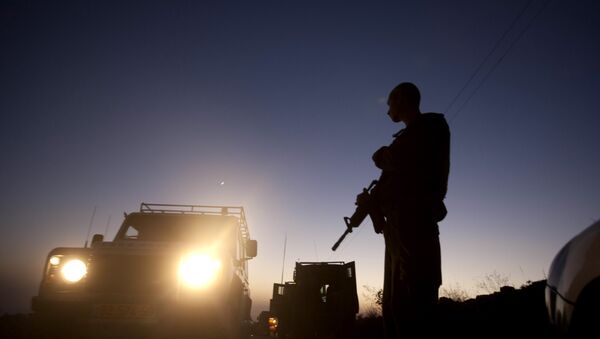Speaking at the IDC Herzliya Conference Tuesday, former Israeli Defense Minister Moshe Ya'alon said that conducting "war between wars" is of key importance to Israeli security.
"It is called the war between the wars. In that context you don't allow entities in the region to become stronger," said Ya'alon, according to the Jerusalem Post. "We don't make everything public but do whatever it takes so that Iranian arms don't reach Gaza. The same is true of Lebanon and Syria… When we undermine their capability, we are postponing the next round of violence."
A report by the Jerusalem Post in 2012 took a stab at explaining what this "war between wars" might be.
"‘The war between wars.' This is the term that IDF Chief of Staff Lt.-Gen. Benny Gantz uses to describe the covert operations that the military's special forces carry out during times of apparent quiet," the JP story reads.
"This war is fought by anonymous commandos whose missions mostly remain unknown to the public, as well as by large parts of the Israeli defense establishment," the article continues.
It's the super-secret spy stuff of many video games, and also what conspiracy theorists can't stop talking about.
You've most likely heard the term "false flag" recently — that can also count as black ops. Why do governments tend to deny involvement in such operations? Primarily because admitting them would be a major blow to their nation's reputation and credibility. Imagine snipers shooting at a crowd of protesters in a foreign state to spark violent clashes with casualties in order to overthrow the government in an armed revolt? That's just one example.
Back in 2012, Israel saw a significant increase in the number of its "war between wars" operations, reportedly because Gantz could not "sit idly by as its enemies — particularly Hezbollah, Hamas and Islamic Jihad — build up militarily." According to the JP's 2012 article, the number of "war between wars" operations doubled compared to previous year.
"He puts a major emphasis on this so-called war between wars," a senior member of the IDF General Staff explained to JP at the time. "Not only do these operations provide tangible results but they also send a message to our adversaries and boost deterrence."
Now, Ya'alon is stressing the importance of these operations again, saying that the "key principle guiding Israeli defense should be that the ‘best defense is always offense.'" He justifies these actions by saying that these operations should hamper the military capabilities of Israel's adversaries — Iran being number one, of course.
"I think it is clear that those actions that we take against Iranian targets in Syria could possibly trigger war. We take those actions because if we allow the number of missiles to grow and be deployed, reinforced by the Iranians, it could be even worse," Arens said. "If we are realistic, we have come to know in recent months that there could be an escalation. We're prepared for it, that possibility exists."
Both former ministers agreed, however, that Israel is under a threat — mostly by a missile strike — because of "Iran and its destabilizing activities in the Middle East," JP reports.
"I tend to think that for quite a time now we never really perceived missiles as a real, tangible threat but ranges have developed and extended," Arens said.
"All of Israel is exposed, from its most northern tip to its most southern tip. We live with this danger and, over the last two years, we have taken correct tactical steps wherein we act to reinforce our deterrence. We're willing to work actively in Syrian skies," he added.
On a curious sidenote, during the same conference, Ya'alon called for the term "Israeli-Arab conflict" to be retired, and pointed out that a number of Muslim states are now effectively allies of Israel.
"Those who still use the term Israeli-Arab conflict, you are out of date," said Ya'alon. "There are shared interests that have brought the Sunni Arab camp, led by Saudi Arabia, to be in the same boat with us. We need to hold a big stick to survive but we have a lot to offer countries in the region."
"This is a result of their appreciation of our capabilities," Arens agreed.




